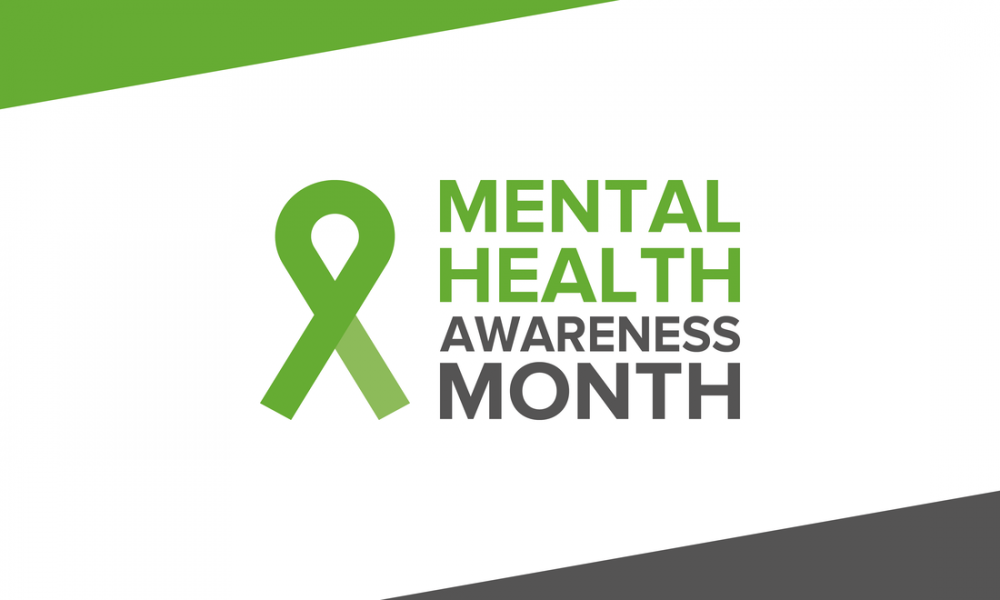- Admission
- Discover Episcopal
- Our Program
- Athletics
- Arts
- Spirituality
- Student Life
- Support Episcopal
- Alumni
- Parent Support
- Knightly News
- Contact Us
- Calendar
- School Store
- Lunch Menu
« Back
Mental Health Awareness and the Whole Child
May 10th, 2019

We all want our children to be “happy”, but what is happiness? This question has been explored by countless universities. In recent years, Yale University founded a course titled “Psychology and the Good Life” and it has become one of their most popular courses. This course explores the keys to happiness and is now available online to the public on Coursera identified as “The Science of Well-Being”. In this course, Professor Laurie Santos links happiness to kindness, social connection, gratitude, mindfulness, and positive health habits such as sleep and nutrition.
As parents, we are often aware of any slight physical changes in our child. We look out for their health and wellness by taking them to the doctor at any sign of illness, for their vaccinations, and we bandage a skinned knee. However, mental health can be a challenge to identify. Focusing on observable behaviors and having daily conversations with our children is critical to understanding their mental well-being. Our young children often wear their emotions on their sleeves and show us through tears or exclamations of excitement how they are feeling. As teens move into middle school, they often become more guarded with their emotions. Adolescents are beginning to pull away from parents and focus more on peer relationships. While this is normal and healthy as they develop their own identity, it’s important to realize they still need parental reassurance, support and nurturance.
How can you identify if your child is in emotional distress? These observable indicators may help you:
- Decrease in grades. Your typically dedicated and strong student is no longer engaged and interested in school.
- Isolating themselves. While wanting more autonomy from adults is typical, isolating from peers and not engaging with others can signal emotional distress.
- Michele Borba, author of UnSelfie, recommends using the “too index”:
- Parents know their children’s normal level of moodiness and behavior. If you notice mood/behavior is becoming TOO intense or lasting TOO long, or spreading into other areas of their life such as school, sports, friends, it may be time to seek support.
- Loss of interest in hobbies and sports.
- Secretive behavior- online or in the home.
- Change in appetite or sleeping patterns.
Here are some guidelines for starting the conversation with your child about their mental health and well-being:
- Start with “I’ve noticed….” and remain calm and non-judgemental.
- Express concern- avoid labels.
- Consider parental pressure related to school and sports performance. Many high-achieving students are driven to work hard and please others. Ask your child…..”Am I putting too much pressure on you?”
- Car rides can be good opportunities for talking- the pressure of eye contact isn’t there, and it can feel natural.
- Talk with your child about his/her daily life. Consider incorporating “highs” and “lows” into your car rides or dinner time talk where each person shares something about their day.
- Ask your child about their friend’s happiness and emotional health. Since teens are peer focused, this may feel less threatening and allow them to open up.
- Watch for movies and books with themes related to mental health that can lead to discussion.
Episcopal School’s mission statement focuses on developing the “whole child”. We want to partner with you to support your children to grow into successful and happy young adults. This May marks the 70th year that the Mental Health Association of American recognizes “Mental Health Awareness Month” providing an opportunity for us to talk openly about mental health and our children’s happiness. If you have concerns for your child’s mental health, please reach out to your division counselor. We are available to collaborate and provide support.
References:
Yale University Course on “Psychology and the Good Life” https://news.yale.edu/2018/02/20/yales-most-popular-class-ever-be-available-coursera
Coursera offering Yale Course “The Science of Well-Being” https://www.coursera.org/learn/the-science-of-well-being
Mental Health America: http://www.mentalhealthamerica.net/about-us
NBC News Learn Parent Toolkit: https://www.parenttoolkit.com/health-and-wellness/conversation-starter/mental-health/tough-talks-how-to-talk-to-your-child-about-mental-health
Child Mind Institute: https://childmind.org/article/tips-communicating-with-teen/
Alicia Kelly
Alicia Kelly has served as a School Counselor at Episcopal since 2001. As the Middle School Counselor, she has a passion for helping pre-adolescents reach their potential, academically, emotionally, and spiritually. Alicia holds a Bachelor’s degree in Psychology, Master’s in Health Sciences- Rehabilitation Counseling, and is a Certified School Counselor and Licensed Professional Counselor.
The Episcopal School of Baton Rouge 2025-2026 application is now available! For more information on the application process, to schedule a tour, or learn more about the private school, contact us at [email protected] or 225-755-2685.
Posted in the categories All, Counselors Corner.
Other articles to consider
 Sep11A Tradition of Faith and Community: The Fourth Grade Bible Blessing
Sep11A Tradition of Faith and Community: The Fourth Grade Bible BlessingLower School celebrated a milestone as fourth grade students received new Bibles.
See Details Sep11Introducing the Class of 2026 National Merit Semifinalists and Commended Scholars!
Sep11Introducing the Class of 2026 National Merit Semifinalists and Commended Scholars!Introducing the Class of 2026 National Merit Semifinalists and Commended Scholars!
See Details Sep5Building Community through Chess
Sep5Building Community through ChessMembers of the Middle School Chess Club describe it as a fun opportunity to become a better chess player. Read more about this club that has recently experienced tremendous growth.
See Details Sep4Finding Joy and Community in New Experiences
Sep4Finding Joy and Community in New ExperiencesCarrie Poynot challenges others not to fear failure and to find joy in trying new things. Read her recent Upper School Chapel message.
See Details
Categories
- All
- Admission
- Athletics
- College Bound 2019
- College Bound 2020
- College Bound 2021
- College Bound 2022
- College Bound 2023
- College Bound 2024
- College Bound 2025
- Counselors Corner
- Episcopal Alumni
- Giving
- Head Of School
- Lower School
- Middle School
- Spirituality And Service
- Student Work
- The Teachers' Lounge
- Upper School
- Visual And Performing Arts
Recent Articles
- 09/11/25A Tradition of Faith and Community: The Fourth Grade Bible Blessing
- 09/11/25Introducing the Class of 2026 National Merit Semifinalists and Commended Scholars!
- 09/5/25Building Community through Chess
- 09/4/25Finding Joy and Community in New Experiences
- 08/28/25Beyond Numbers: Bringing Social/Emotional Learning into Middle School Math
- 08/28/25Pursue Excellence: The Center for Excellence in Teaching & Learning











